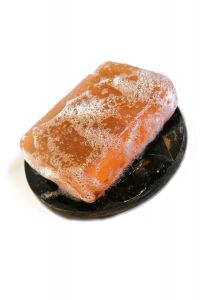 I returned home after a night out at a friend’s house. It was late. The house was dark and quiet. My husband and kids were asleep. I was looking forward to taking a hot shower, to complete my relaxing evening with friends — a rare treat I promise to repeat more often in an effort to claim more “me” time and which is possible now that my older child is approaching a double-digit age.
I returned home after a night out at a friend’s house. It was late. The house was dark and quiet. My husband and kids were asleep. I was looking forward to taking a hot shower, to complete my relaxing evening with friends — a rare treat I promise to repeat more often in an effort to claim more “me” time and which is possible now that my older child is approaching a double-digit age.
As I entered the shower room, I noticed the towel placed on the floor was very wet. I figured the kids certainly enjoyed their shower time. I also found a pair of wet scissors and a bunch of hair on the tub. I wasn’t sure if it was my daughter’s or my son’s hair. I looked in the trash to see if there was more evidence to explain what happened, but there was none. So I put the scissors and hair away and took my shower. Then I kissed the kids goodnight, inhaling the sweet smell of their moist, shampooed hair and went to bed.
When my husband and I woke up in the morning, naturally I asked him about last night’s shower scene. “I noticed a pair of scissors and a bunch of hair in the shower. What is that all about?”
“I don’t know,” is what he said.
“Really? Interesting,” I replied and left it at that.
My 9-year-old daughter was next to wake up. I asked her to come to our bed and cuddle with me, and as we were cuddling away, I asked how she slept and we exchanged a few words. I then said: “By the way, I noticed a pair of scissors and a bunch of hair on the tub. Do you know what that’s about?”
She answered right away. “Oh, Mommy, when I took a shower last night, I had a knot I couldn’t get rid of, so I cut it.” I told her that was fine but encouraged her to ask for help next time.
 At that point, my husband turned around suddenly. “What? That’s how the floor got so wet?” He wasn’t so much angry as surprised. “Last night, you told me the floor got all wet, because the soap slipped out of your hands and you came out of the shower to get it so nobody slips on it. You made up this entire story?”
At that point, my husband turned around suddenly. “What? That’s how the floor got so wet?” He wasn’t so much angry as surprised. “Last night, you told me the floor got all wet, because the soap slipped out of your hands and you came out of the shower to get it so nobody slips on it. You made up this entire story?”
Our daughter offered an innocent smile and admitted a “yes.”
I asked her why she didn’t tell her father the truth: “Did you think he would get upset?” And she replied that she thought he would.
Throughout the day, I kept thinking about the events of the morning. My daughter is very much “by the book.” She always plays by the rules and sticks to the truth no matter what. Such a blunt, off-the-cuff lie is unlike her. The event itself appears to be of little significance: Big deal that she cut her hair and instead told a story that she dropped the soap. But the implications are significant: She felt the need to be dishonest to avoid an anticipated reaction.
This lesson hit me hard that day.
We have to find a way to let our kids — at any age, any stage — feel free to come to us, to talk to us, to tell us what troubles them with the comfort of them knowing that we will listen, not get upset with them. Yes, we may not always agree with them or support their decisions and actions — it’s our job as parents to be their compass — but they should always feel they can come to us and tell the truth. Or they may end up lying to us and turning to someone else for guidance.

